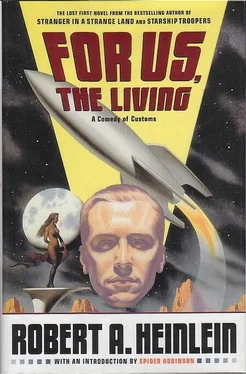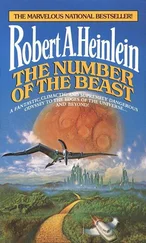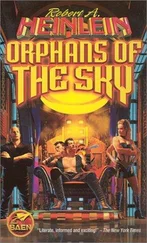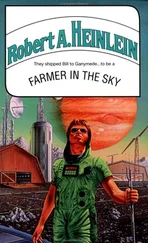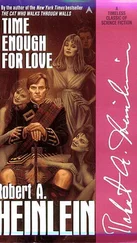Robert Heinlein - For Us, The Living
Здесь есть возможность читать онлайн «Robert Heinlein - For Us, The Living» весь текст электронной книги совершенно бесплатно (целиком полную версию без сокращений). В некоторых случаях можно слушать аудио, скачать через торрент в формате fb2 и присутствует краткое содержание. Жанр: Фантастика и фэнтези, на английском языке. Описание произведения, (предисловие) а так же отзывы посетителей доступны на портале библиотеки ЛибКат.
- Название:For Us, The Living
- Автор:
- Жанр:
- Год:неизвестен
- ISBN:нет данных
- Рейтинг книги:3 / 5. Голосов: 1
-
Избранное:Добавить в избранное
- Отзывы:
-
Ваша оценка:
- 60
- 1
- 2
- 3
- 4
- 5
For Us, The Living: краткое содержание, описание и аннотация
Предлагаем к чтению аннотацию, описание, краткое содержание или предисловие (зависит от того, что написал сам автор книги «For Us, The Living»). Если вы не нашли необходимую информацию о книге — напишите в комментариях, мы постараемся отыскать её.
For Us, The Living — читать онлайн бесплатно полную книгу (весь текст) целиком
Ниже представлен текст книги, разбитый по страницам. Система сохранения места последней прочитанной страницы, позволяет с удобством читать онлайн бесплатно книгу «For Us, The Living», без необходимости каждый раз заново искать на чём Вы остановились. Поставьте закладку, и сможете в любой момент перейти на страницу, на которой закончили чтение.
Интервал:
Закладка:
"Just a moment, Master Davis. What is this new money worth, if anything?"
"How do you mean that?"
"Well, in my day money could be exchanged for gold, not very easily, but it could be done. How can one be sure that this new money is anything but pieces of paper?"
"As I told you before, the government will accept it for taxes, and for services such as the postal service. But you want to know what it is worth in terms of real wealth, just as the old style dollar was worth so many grains of gold. Very well. If you present a draft for a thousand credit units or dollar bills to any one of several government warehouses, the bursar will give you an assorted group of basic commodities of weights and standards specified by law."
"Where does the government get these commodities?"
"Grows or makes them, buys them in the open market, and may occasionally accept some of them as taxes."
"That seems awfully cumbersome compared with the gold standard."
"It is cumbersome, but it's worthwhile for it gives a much more nearly stable medium of exchange than gold. As a matter of practice the government keeps very small stocks of commodities because with a stable standard for money the public prefers cash or credit at the Bank of the United States to the trouble of handling bulk in commodities. They are satisfied to know that they can get real wealth in specified amounts, if they choose."
"How about foreign trade? This sort of money would be a nuisance there."
"Gold, as well as platinum, silver, and other convenient commodities, is still used in foreign trade exchange. The government buys and sells these commodities in the open market as a convenience to its citizens."
"I guess that clears it up. It still seems complicated."
"It is, Perry, more or less. But it isn't anything to the anarchistic maze that your old money system was. Let's get back the tax problem. The fact that there is no necessary one-to-one relationship between taxes and government expenditure is startling at first, but is evident from the nature of money. Money in the hands of an individual is a token of a debt to one of us owed by all of us. This token in the hands of the government states that all of us, i.e. the government, owe a debt to all of us, i.e. the government—an absurdity. One cannot owe oneself a debt in any but a poetical sense. Money in the hands of the Federal government is a scrap of paper and ink. It is significant only when held by individuals or groups of individuals.
"We recognize nowadays that Federal taxation is a deflating process, and that Federal government spending is an inflating process. Each process has important secondary effects through which it can be used to regulate for the general welfare. Taxation may be used to prevent unwholesome concentration of wealth. It may also be used to prevent too great a difference in the net income of individuals. The issue of new money is an even more powerful instrument in shaping our economic life to suit our wishes. It is a means of ensuring social security for the entire population through the dividend or inheritance checks. It can stimulate production and prevent inflation of prices through the use of the discount. It is used to assure an equal start for every child. In fact the knowledge of how to use money enables us to inhibit or encourage almost anything without coercion. If we desired, we could institute as near complete a socialism in the United States as we wished, without confiscation and taking over the tools of production. The present set up suits us now. We can change it if we like, when we like, for we understand the economic mechanism. The economic determinism of Marx is an exploded bugaboo, and the American people are the masters, not the slaves, of their economic system."
Davis took a sip of sherry, and looked slightly giddy. "You'll forgive my enthusiasm, I trust. This is my subject and I am sometimes carried away by it."
"I am not surprised," replied Perry. "You have reason. I confess I don't see all those implications just yet, but it sounds amazing."
"You will see," returned Davis, "and by the very method we used. You can set up this game with the chessmen to cover every possible case. For example, throw in some professional men and observe that the cycle is unchanged. Provide a foreign trade with a balance in our favor and see how the cycle can be made to balance. Then a foreign trade in which goods are dumped on us and see how it dislocates our system. Then change the supply to balance it anyhow and observe how we can benefit. Play two tables and let trade flow between the tables. Set up a farm production cycle on one and factory on the other. Throw in corporate organization, trust funds, re-discounted paper, and so forth. Have a labor leader organize the workers and stage a strike. Get a lot of bank credit passed around and then make a run on the bank. Issue stock and watch it fluctuate in market price. Declare war and put industry on a war basis. Inflate the currency. Deflate it. Save your profits to expand your business. Cut prices to meet competition. Get squeezed on your lease. Start out from primitive barter, work up the present system with the dividend, the discount, and the National Account. Do all of those things, but be sure to observe the rule of duplicating the structure of the real world. It's fascinating and you will teach yourself more about money and economics than anyone else can possibly teach you. Bear in mind the fundamental theorem that we formulated about the necessity for new money for capital expansion. If you find any situation which appears to contradict it, or any of our other conclusions, go back and do it over, writing down each step in detail. If you don't find your error, give me a call. But I'm sure you will.*
[*Several typical problems have been worked out for the benefit of the reader and appear as an appendix at the end of the book. A typical modern cycle is given showing the dividend and discount in operation. Especially interesting are examples of twentieth century economics showing the ridiculous impasses into which our forefathers fell simply through failure to understand the nature of money. The Author]
X
Perry followed Master Davis' advice and spent several days making up problems to play out with his economic tin soldiers. He drafted Olga and Diana into the game, and they solemnly played through various combinations of financial and economic situations. At first the women played simply to be agreeable, but they became fascinated by the strange possibilities of early day finance. Olga developed remarkable skill in stock market and commodity manipulation, and amassed fabulous fortunes on paper. Diana protested this and maintained that it obviously would be illegal for anyone to do such wicked things with the necessities of life. References to history left her only partly convinced. Diana liked to run factories but was a failure as a banker, as she could not see any sense in interest and was reluctant to clamp down on a debtor. Both of them admitted that they had not understood the operations of finance and industry before, and had rather taken the economic regime for granted. Perry found himself in the pleasant position of being able to instruct natives of the new America in the workings of their own environment.
In due course he felt that he understood fully the workings of both economic systems, the old and the new, and felt capable of analyzing correctly any possible economic system. Nevertheless he found growing up inside a curious distaste for the modern system. He now understood the mechanics of it, true, and realized that its mathematical theory was correct, but notwithstanding it did not suit his taste. He decided to call Davis and discuss it with him.
After a decent interval of drink and smoke, Davis opened the conversation.
Читать дальшеИнтервал:
Закладка:
Похожие книги на «For Us, The Living»
Представляем Вашему вниманию похожие книги на «For Us, The Living» списком для выбора. Мы отобрали схожую по названию и смыслу литературу в надежде предоставить читателям больше вариантов отыскать новые, интересные, ещё непрочитанные произведения.
Обсуждение, отзывы о книге «For Us, The Living» и просто собственные мнения читателей. Оставьте ваши комментарии, напишите, что Вы думаете о произведении, его смысле или главных героях. Укажите что конкретно понравилось, а что нет, и почему Вы так считаете.
